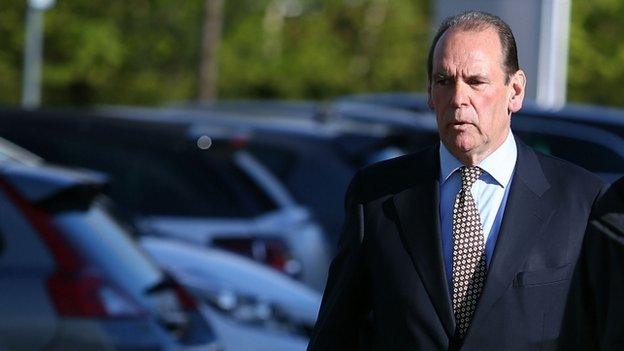Hillsborough Inquests: Disaster was 'predictable', says expert
- Published
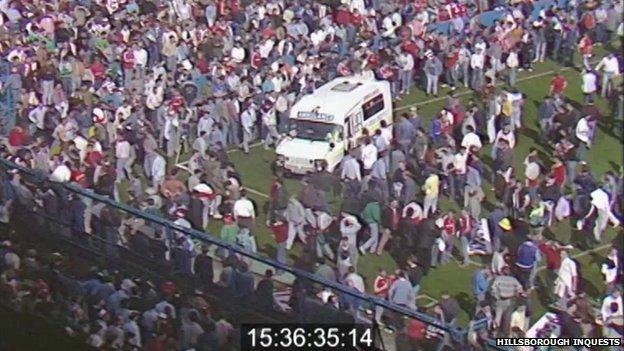
Ninety-six Liverpool fans died as a result of crush at Hillsborough
The Hillsborough disaster "could have been predicted", the new inquests have been told.
Expert paramedic David Whitmore also said St John Ambulance volunteers "behaved better" than their counterparts in the ambulance service.
He added that the decision to treat a fan with a suspected broken leg as a "priority" was a "serious failure".
Ninety-six Liverpool fans died in a fatal crush on the terraces at the FA Cup semi-final on 15 April 1989.
Mr Whitmore is an expert in pre-hospital emergency care who has been instructed by the coroner to give his professional opinion on how medics responded to the disaster at Sheffield Wednesday's Hillsborough ground.
He worked as an ambulance officer in the 1980s and applied the standards of 1989 to how South Yorkshire Metropolitan Ambulance Service (SYMAS) responded.
'Tried to engage'
The jury heard that in a report submitted to the coroner, Mr Whitmore wrote: "This disaster could have been predicted and it could have been planned for."
Asked by a barrister representing bereaved families if that was "still your position", Mr Whitmore said: "Yes, it is."
Jenni Richards QC, who represents the Yorkshire Ambulance Service, said it had not been suggested to ambulance personnel "that they could have predicted this disaster".
Mr Whitmore said: "As I said in that paragraph [of my report], that South Yorkshire Ambulance Service should have been better involved in the planning for events such as these matters.
"I then make the point that [Chief Ambulance Officer Albert] Page had indeed tried to engage with Sheffield Wednesday about that, so it's not a criticism of SYMAS."
Mr Whitmore also gave his opinion of how SYMAS officers dealt with the immediate aftermath of the disaster.
'Most in need'
At 15:12 BST, six minutes after the match was stopped by police, a senior ambulance officer ordered two junior officers to treat a man with a suspected broken leg, who he believed was a "priority".
Mr Whitmore said that decision was a "serious failure".
Judy Khan QC, who represents 75 of the bereaved families, said at that time there were fans who had been trapped in pens on the terraces for a "very long time" and "were in urgent need".
Ms Khan added: "The man with the fractured leg did not fit into that category."
Mr Whitmore said he would have deployed all the available resources to "help those most in need at that point in time".
He also criticised the lack of "command and control" from the ambulance service at the disaster, and that more casualties were sent to one Sheffield hospital than another.
Terry Munyard, who represents three of the families, said that in his report Mr Whitmore commented "an unfortunate amount of time was allowed to slip by before any realisation occurred of the enormity of what was happening".
But, Mr Munyard said, St John Ambulance volunteers in the stadium that day "did not allow time to slip by, they started immediately".
He asked if Mr Whitmore agreed that the amateur medics "behaved better in the immediate unfolding of the disaster than the professionals".
Mr Whitmore replied: "Yes, I would agree with that."
Mr Munyard added that St John Ambulance personnel "including teenagers" were, in the immediate response to the disaster, "the heroes of Hillsborough".
Mr Whitmore said: "In the immediate response, yes, I would use those terms, yes."
The inquests continue on Monday.

Who were the 96 victims?
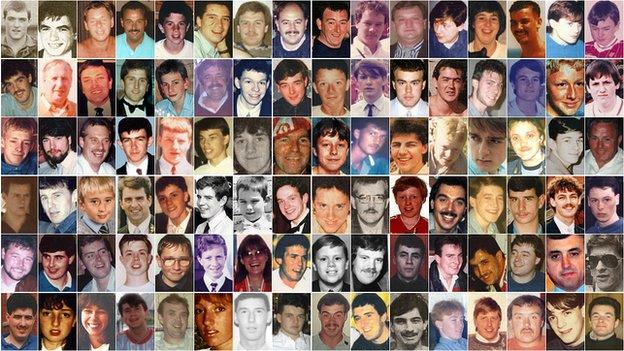
BBC News: Profiles of all those who died

- Published6 May 2015
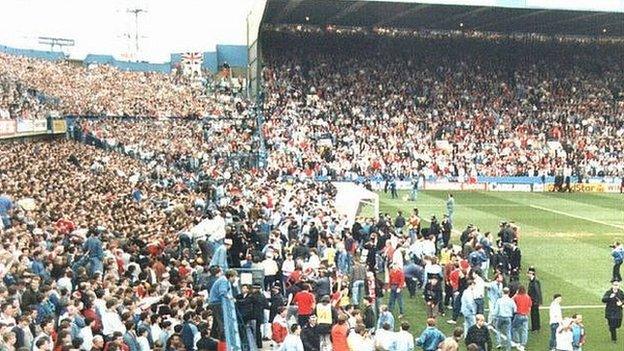
- Published5 May 2015
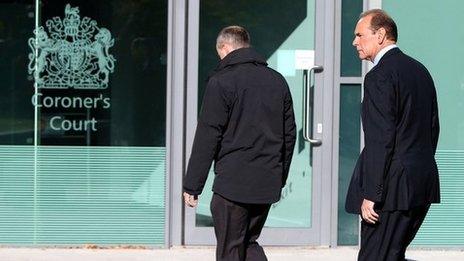
- Published30 April 2015
